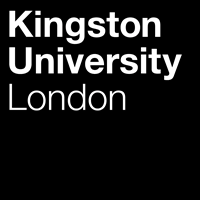About the Project
Ambient assisted living aims at improving the quality of life and supporting independent and healthy living of older or/and impaired people within their own home environment. On one hand, video-based systems usually employ fixed surveillance cameras to monitor an individual’s activities. However, occlusions created by both a cluttered environment and the subject’s body prevent recording detailed information such as object manipulation. On the other hand, wearable camera devices, such as GoProTM, allows recording activities from the subject’s own point of view (egocentric perspective), typically making hands and manipulated objects visible [1]. While such videos usually capture the activities of interest, their automatic analysis is particularly challenging due to the large and unconstrained range of camera motions.
The development of deep learning CNN architectures has led to remarkable progress in the field of computer vision, especially for object detection [2]. However, variability in an object’s appearance when manipulated, occluded or seen from different angles prevents consistent object recognition, which affects the interpretation of the scene of interest. Consequently, an individual’s activities cannot be monitored with the required accuracy.
This project proposes to address activity recognition from hand and object manipulation using videos captured by a wearable camera by developing a novel two-stream CNN-Profile HMM architecture, where the successful deep learning CNN architecture that is designed to optimise inter object discrimination is enhanced by intra object variation models. Indeed, it is proposed to use instances when a given object is recognised to create a canonical object model that would integrate viewpoint variations. Such models will be created using the novel ‘vide-omics’ paradigm which has recently been developed at Kingston University [3]. Founded on the principles of genomics where variability is the expected norm rather than an inconvenience to control, ‘vide-omics’ will allow modelling variations of an object’s appearance by interpreting them as the product of mutations applied to a canonical model, the ‘common ancestor’ of all representations of that object. Similarly to genomics where models of gene families are produced by encoding mutations between each member using Profile Hidden Markov Models (P-HMMs), novel individual descriptors will be developed based on P-HMMs to model quantitatively known variations. The suitability of P-HMMs to encode variations in images has already been demonstrated in a recent publication [4].
Applicants should have, at least, an Honours Degree at 2.1 or above (or equivalent) in Computer Science or related disciplines. In addition, they should have excellent programming skills in Matlab, Java and/or C++ and an interest in machine learning.
Qualified applicants are strongly encouraged to contact informally the supervising academic, Dr Nebel ([Email Address Removed]), to discuss the application. More on Dr Nebel’s research group and activities can be found on his personal website: https://sites.google.com/site/jeanchristophenebel
[1] Recognition of Activities of Daily Living with Egocentric Vision: A Review, T. Nguyen, J.-C. Nebel, F. Florez-Revuelta, Sensors, 16(1):72; 2016
[2] Recognition of activities of daily living from egocentric videos using hands detected by a deep convolutional network, T. Nguyen, J.-C. Nebel, F. Florez-Revuelta, International Conference on Image Analysis and Recognition, 2018
[3] Vide-omics: A Genomics-inspired Paradigm for Video Analysis, I. Kazantzidis, F. Florez-Revuelta, M. Dequidt, N. Hill and J.-C. Nebel, Computer Vision and Image Understanding, 166:28-40, 2018
[4] Profile Hidden Markov Models for Foreground Modelling, I. Kazantzidis, F. Florez-Revuelta and J.-C. Nebel, IEEE International Conference on Image Processing, 2018

 Continue with Facebook
Continue with Facebook



